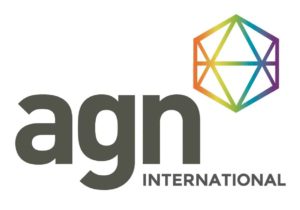BKL’s membership of AGN International puts us in a diverse global network of accounting, tax and advisory firms, including many in the United States. Just as they are starting 2021 with significant change – their new President and Vice President – so is the UK: life outside the European Union following the UK-EU Trade and Cooperation Agreement (TCA) struck on Christmas Eve 2020.
If we explore how the US sees future trading opportunities with the UK, what is the bigger picture that emerges of the UK’s potential as a post-Brexit bridge for businesses with international aspirations?
Sir Kim Darroch, who is both a former British ambassador to the US and a former EU adviser to the Prime Minister, is quoted in The Wall Street Journal as saying: “There is no question that we have lost a significant element of our value to the US by no longer being around the EU table.” What does the actual trade data tell us about that value?
Currently, the UK is the fifth largest export destination for US goods and services. 7,500 US businesses have operations in the UK. There is no doubt that the UK remains an important, if junior, business partner with the US.
President Biden is inheriting a ‘work in progress’ for the long-trailed US/UK trade deal. It seems this is now likely to compete for Biden’s attention with the emerging demands for a bigger more important deal with the EU bloc.
Data produced by the Office of National Statistics indicates that foreign inward investment in the UK continued to grow after the EU Referendum result. This growth occurred in all but four quarters to the third quarter of 2020. Data pertaining to ‘Inward Investment Flow’ indicates that the UK has been ranked first in the EU in six of the last ten years.
What’s changed commercially as a result of the Brexit deal?
The UK has tariff-free, quota-free access to the EU: one of the three biggest markets in the world. Admittedly there are now some new burdens and possibly costly ‘tariff-free barriers’, otherwise known as red tape. But one might assume that familiarity and technology will smooth these out over time.
US (or any) businesses using the UK as a bridge into Europe still needs to adhere to the structures of EU regulation on goods and services entering the bloc – as they and UK businesses did before Brexit. How far the UK may ultimately deviate from these regulations (the “Singapore of Europe” – more on that below), and how soon, only time will tell.
Could rules of origin be important?
Something that may have an impact is the TCA’s complex set of regulations in the area of ‘Rules of Origin’. EU customs authorities will require goods entering the EU from the UK to prove their ‘origin’. Where multiple countries are involved in the manufacture of a product, the ‘origin’ will normally be determined by the proportion of ‘economic value’ attributed to a particular country.
An EU list of ‘preferred countries of origin’ determines if and what duty will be paid on the item. Recent reports suggest this is already creating delays. It remains to be seen how this will affect complex assemblies such as motor vehicles.
While there have been no major alterations to UK corporate tax laws, there are some special conditions attached to certain transactions and funds. Some automatic exemptions may no longer exist. There are also plenty of non-tariff barriers to think about. There are reports that some online retailers in the EU are refusing to deliver goods to the UK because of increased VAT costs and red tape, and vice versa.
A major EU concern was to try to ensure that it is not easier to do business in the UK than other member countries. – so as not to be faced with economy that can out-compete the Eurozone, located only 20 miles off the shores of the EU. However, according to The Times this week, ‘a government source said that Mr Johnson was pushing for Britain to become a low-tax, low-regulation regime like Singapore’ and Rishi Sunak is to lead ‘a cross-Whitehall committee which will require departments to closely examine which regulations can be reformed.’
Financial services post-Brexit
There is still much to be negotiated in relation to the services economy, especially the financial services sector. The TCA confirms that the EU and UK maintain their markets open for financial service operators from the other party to supply services where they have an actual physical presence. But equivalence in areas such as mutual recognition of professional qualifications is dropped.
Also, there are no equivalence mechanisms in the TCA and as things stand remote promotion and delivery of financial services products (in either direction) will be limited. There is talk of a regulatory cooperation deal by March, but it is unclear how far-reaching this will be.
On balance?
For now, the UK remains the fifth biggest economy in the world, with the third biggest trading bloc on its doorstep, and English as its native tongue. The pragmatic view that there are opportunities for businesses to land in the UK and springboard into the EU has not disappeared.
The positive reasons why companies in the US (or anywhere else) would come to the UK remain similar:
- English is still the most frequent language of global business
- The domestic tech business boom and a strong digital economy
- A highly qualified workforce in an employer-friendly regulatory regime (compared to some EU jurisdictions)
- Physical and digital connectivity to the world, not just Europe, from the prime meridian
- Security of the British financial and regulatory institutions
- access to world-class professions and creative industries
Some will argue that certain EU territories can approach or exceed those UK features. Businesses will doubtless judge relative merits much as they always have.
Without the UK, the EU remains a formidable economic bloc worth $13.5 trillion. Even with the TCA, the Office of Budget Responsibility forecasts that the UK economy will be 2% to 3% smaller after ten years than if the UK had “remained”.
But other forecasts indicate the opposite. At $2.4 trillion, the UK is not an economic minnow. Many will be anticipating that outside the machinations and compromises of the EU, increased responsiveness can rank as an alternative to sheer bulk.
Trade is like water and will flow along the path of least resistance. So the medium-term challenge to the UK must be to reduce, automate and smooth over, the non-tariff barriers (the red tape), and to seize future opportunities.
It’s still very early days, but on current evidence, it would seem there could still be advantages available by locating in the UK.
For overseas businesses looking to expand into the UK and Europe, we have more information in our business overview for companies operating in the UK. You can also get in touch with us.
Thank you to AGN International for the original version of this article.

AGN International Ltd is a company limited by guarantee registered in England & Wales, number 4619314, registered office 3 More London Riverside, London SE1 2RE, United Kingdom. AGN International Ltd (and its regional affiliates; together “AGN”) is a not-for-profit worldwide membership association of separate and independent accounting and advisory businesses. AGN does not provide services to the clients of its members, which are provided by Members alone. AGN and its Members are not in partnership together, they are neither agents of nor obligate one another, and they are not responsible or liable for each other’s services, actions or inactions.


